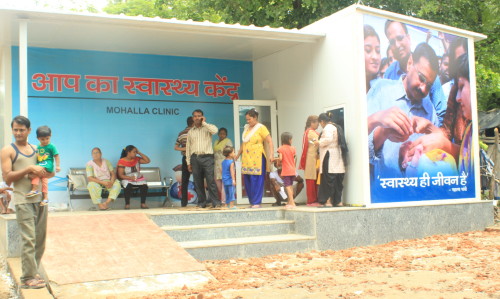- Home
- Medical news & Guidelines
- Anesthesiology
- Cardiology and CTVS
- Critical Care
- Dentistry
- Dermatology
- Diabetes and Endocrinology
- ENT
- Gastroenterology
- Medicine
- Nephrology
- Neurology
- Obstretics-Gynaecology
- Oncology
- Ophthalmology
- Orthopaedics
- Pediatrics-Neonatology
- Psychiatry
- Pulmonology
- Radiology
- Surgery
- Urology
- Laboratory Medicine
- Diet
- Nursing
- Paramedical
- Physiotherapy
- Health news
- Fact Check
- Bone Health Fact Check
- Brain Health Fact Check
- Cancer Related Fact Check
- Child Care Fact Check
- Dental and oral health fact check
- Diabetes and metabolic health fact check
- Diet and Nutrition Fact Check
- Eye and ENT Care Fact Check
- Fitness fact check
- Gut health fact check
- Heart health fact check
- Kidney health fact check
- Medical education fact check
- Men's health fact check
- Respiratory fact check
- Skin and hair care fact check
- Vaccine and Immunization fact check
- Women's health fact check
- AYUSH
- State News
- Andaman and Nicobar Islands
- Andhra Pradesh
- Arunachal Pradesh
- Assam
- Bihar
- Chandigarh
- Chattisgarh
- Dadra and Nagar Haveli
- Daman and Diu
- Delhi
- Goa
- Gujarat
- Haryana
- Himachal Pradesh
- Jammu & Kashmir
- Jharkhand
- Karnataka
- Kerala
- Ladakh
- Lakshadweep
- Madhya Pradesh
- Maharashtra
- Manipur
- Meghalaya
- Mizoram
- Nagaland
- Odisha
- Puducherry
- Punjab
- Rajasthan
- Sikkim
- Tamil Nadu
- Telangana
- Tripura
- Uttar Pradesh
- Uttrakhand
- West Bengal
- Medical Education
- Industry
Mohalla Clinics: Taking healthcare to doorsteps of poor

New Delhi, Aug 9 (IANS): Until a month ago, Neelam would spend Rs.70 on travelling in a cycle-rickshaw to get her blood sugar checked at a diagnostic centre five km away from her place of residence for Rs 50. Now, she can get the test done for free at Delhi's first Mohalla (neighbourhood) Clinic - a two-room modern basic healthcare centre started by the AAP government in a west Delhi slum with a population of over 12,000.
"This place had no chemist's shop, let alone a primary health centre. Having the Mohalla Clinic here is such a relief," Neelam, who is in her 40s and lives in the Peeragarhi Relief Camp, told IANS.
Aiming to provide basic healthcare to the poor in the capital, the Aam Aadmi Party (AAP) government plans to open 1,000 Mohalla Clinics in slum clusters and poorer neighbourhoods in outlying areas of Delhi, which will also ease the burden on over-crowded hospitals. The AAP government had earmarked Rs 3,138 crore for the health sector in its maiden Rs.41,129 crore budget presented in June.
The first such unit has already become popular among the residents of the settlement inhabited largely by migrant worker families who live on small and uncertain incomes. The compact, modern structure with lively, colourful exteriors is a far cry from what the expression "government primary health centre" brings to mind.
A covered verandah leads to a roughly 25 feet x 15 feet room that has been divided into two. The first comprises the reception and digital registration area, testing lab and pharmacy while the other is for the doctor. The clinic is air-conditioned and equipped with all that one would expect in a private doctor's facility, as also an LED TV and a refrigerator.
The clinics will be set up in habitations of sizable numbers like unauthorised colonies, rehabilitation colonies and urban villages largely inhabited by the poor that don't have access to private doctors. Some 50 basic tests will be conducted at each clinic while basic medicines will also be given out for free.
"Every day 180-190 patients visit the clinic. They don't have to go to hospitals for minor ailments," Alka Choudhary, the doctor at the centre, told IANS.
Long queues of patients can be seen outside the centre which runs from 8 a.m to 2 p.m. Besides a doctor, the centre has a pharmacist, a lab technician and a trained midwife.
"The infrastructure is so good that the work environment becomes conducive. You don't feel tired," Choudhary said. She earlier worked at a Delhi government Primary Healthcare Centre (PHC).
Interestingly, Choudhary also doubles up as a counsellor.
"These people are poor and are not aware of their rights. Many a time women come here complaining of domestic violence that they have faced. We have guided them to go through the proper channel (for redressal)," she added.
Delhi Health Minister Satyendra Jain said that the AAP government had first studied the health systems of other countries.
"We came up with this concept only after studying the health systems of the US, Brazil, Switzerland and Cuba," Jain told IANS, adding that the facility was cost-effective and easy-to-maintain due to its optimum size.
"The cost of building one Mohalla Clinic is between Rs.15 lakh and Rs.20 lakh, while a PHC requires Rs.3 crore to Rs.4 crore," Jain said.
"We want middle-class people to visit the Mohalla Clinics. We will also increase facilities at these centres. For instance, mobile applications will enable people take appointment without standing in a queue," he added.
"The ultimate aim is to improve the health infrastructure. Common people visit government hospitals for minor ailments that reduce their efficiency. Once they start coming to Mohalla Clinics, the burden on hospitals will reduce," he said.
Meghna A Singhania is the founder and Editor-in-Chief at Medical Dialogues. An Economics graduate from Delhi University and a post graduate from London School of Economics and Political Science, her key research interest lies in health economics, and policy making in health and medical sector in the country. She is a member of the Association of Healthcare Journalists. She can be contacted at meghna@medicaldialogues.in. Contact no. 011-43720751


